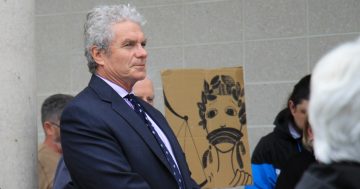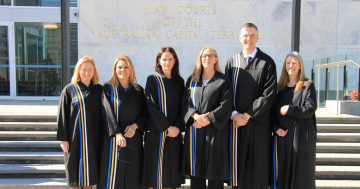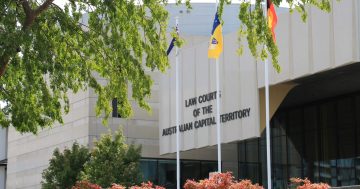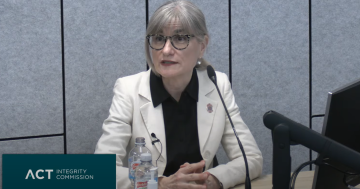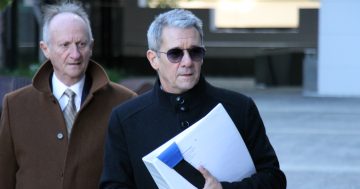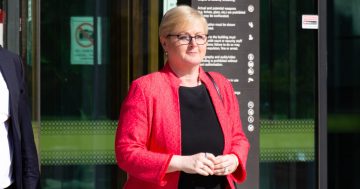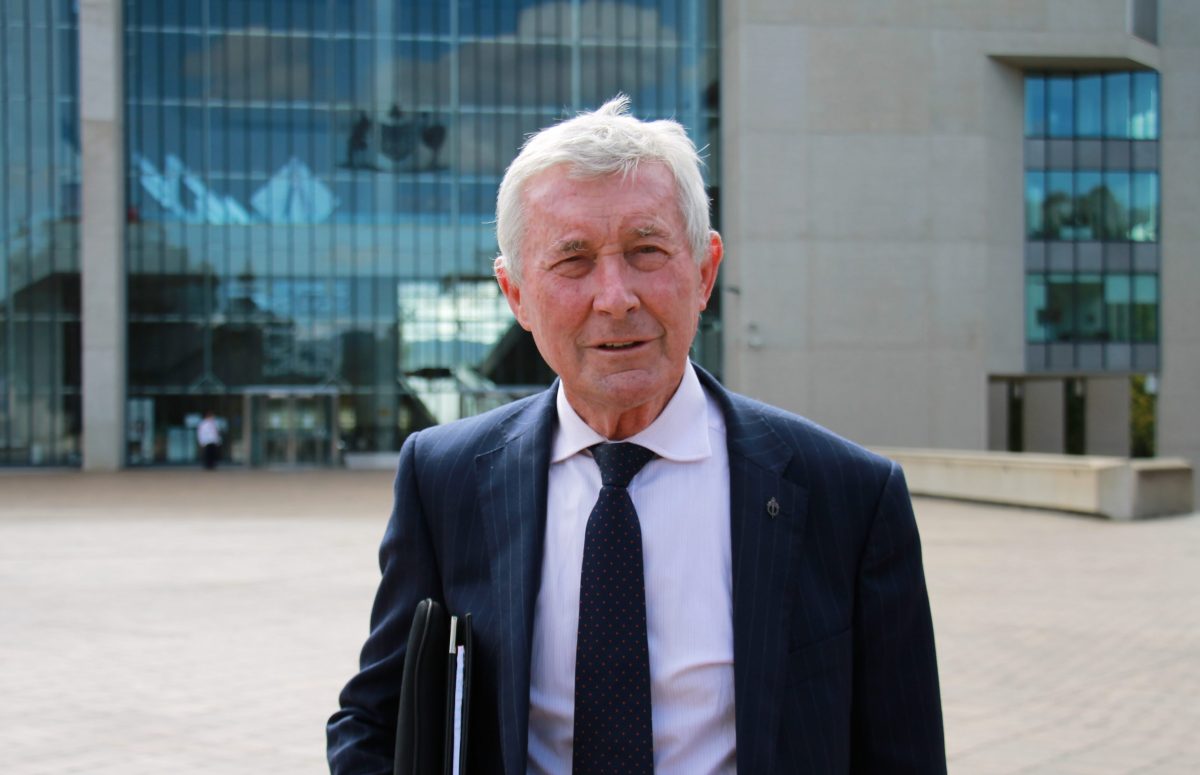
Bernard Collaery exits the High Court after hearing an application for special leave in 2022. Photo: Albert McKnight.
A court’s secretive decision involving whistleblower Bernard Collaery, which has been kept out of the public’s view for over two years, has finally been released and emphasises the importance of open justice.
Before the case was discontinued, the former ACT Attorney-General had been accused of providing information from the Australian Secret Intelligence Service (ASIS) to ABC journalists and conspiring with his former client Witness K to give such information to the Timor-Leste Government.
Witness K was sentenced in 2021, and while Mr Collaery was charged in 2019, his case dragged on for years. It built up a massive fee in legal costs for taxpayers before it was dropped in 2022 after the Albanese government was elected.
During the journey through the courts, Mr Colleary had a win in October 2021 when the ACT Court of Appeal ruled against an order that would have kept large parts of his trial secret.
However, the published judgment on this decision was not released until Tuesday afternoon (9 January), partly because former Attorney-General Michaelia Cash took the matter to the High Court to prevent its unredacted release and two of the appeals court’s judges retired.
Mr Collaery had accepted some of the information in the case against him was sensitive, but asked for several matters to be publicly disclosed and had gone to the Court of Appeal to appeal orders by the ACT Supreme Court’s Justice David Mossop.
Justice Mossop had made orders under the National Security Information Act to prohibit the public disclosure of certain evidence that may be given in his trial, orders sought by another former Attorney-General, Christian Porter, which would have meant that significant parts of the trial would be held in secret.
It has been previously reported that the Court of Appeal’s three judges did accept that the public disclosure of those matters would involve a risk to national security.
“However, the court doubted that a significant risk of prejudice to national security would materialise,” they said.
“On the other hand, there was a very real risk of damage to public confidence in the administration of justice if the evidence could not be publicly disclosed.”
The reasons by the three judges – the then-Chief Justice Helen Murrell, former Justice John Burns and Justice Michael Wigney – were expanded upon when their heavily redacted decision was finally made public.
They said when Justice Mossop had come to his conclusion, “it is likely that his honour gave too much weight to the risk of prejudice to national security and too little weight to the interests of the administration of justice in the circumstances of this case”.
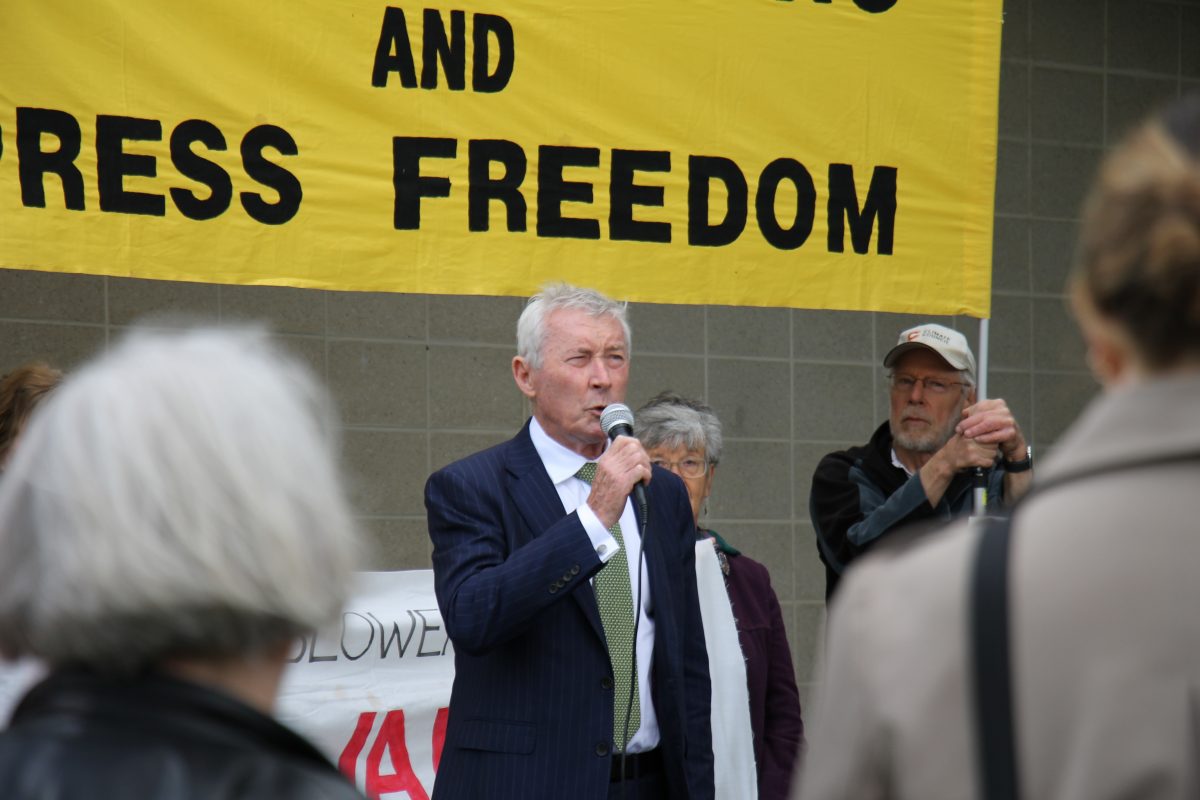
Bernard Collaery attends a rally outside the courts to support David McBride in 2022. Photo: Albert McKnight.
The judges also said information that had been given to them, which was redacted from their decision, “makes it doubtful that there will be any significant risk of prejudice to national security” if the matters Mr Collaery sought to be made public were published.
“The evidence led by the Attorney-General was replete with speculation and devoid of any specific basis for concluding that significant risks to national security would materialise if the Identified Matters were published,” the judges said.
“On the other hand, the risk of damage to public confidence in the administration of justice where proceedings, or parts of proceedings, are held in closed court is very real.
“This is particularly so in the case of criminal prosecutions.”
The public accepted that sometimes court proceedings had to take place in closed court because they had confidence in the proper administration of justice, they said.
“That confidence springs from the general adherence to the open court principle; the public accepts that a few matters must be heard in closed court because it is confident that courts are committed to the open court principle and will only close the courts for cogent reasons,” the judges said.
“The open court principle stands as a bulwark against the possibility of political prosecutions by allowing public scrutiny and assessment of the actions of the respondent and the Attorney-General by reference to the evidence adduced in a criminal trial.”
After over a year of discussion between legal parties, in December 2023, the now-Chief Justice Lucy McCallum ruled the Court of Appeal’s decision should be published in the way that the Attorney-General had proposed due to the interests of national security before it was ultimately released in its heavily-redacted form on Tuesday.
“The Collaery and Witness K prosecutions have underscored significant deficiencies in Australia’s national security laws, secrecy laws and whistleblower protection laws,” Human Rights Law Centre senior lawyer Kieran Pender said.
“It is also high time that the Australian Government apologised to the people of Timor-Leste and proceeded with an inquiry into this sordid affair – as it rightly promised to do if elected, while in opposition.”
Original Article published by Albert McKnight on Riotact.


